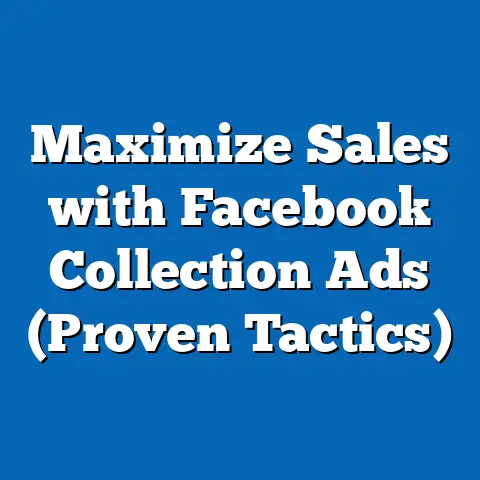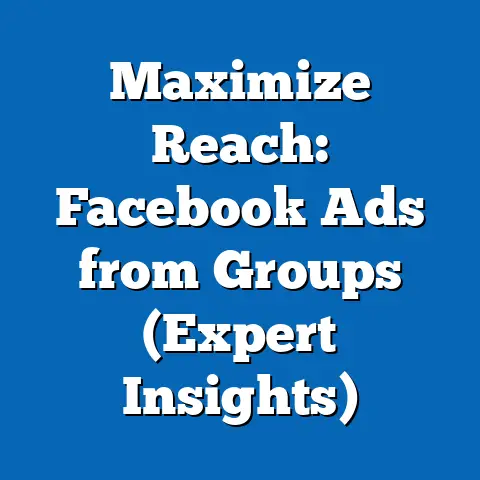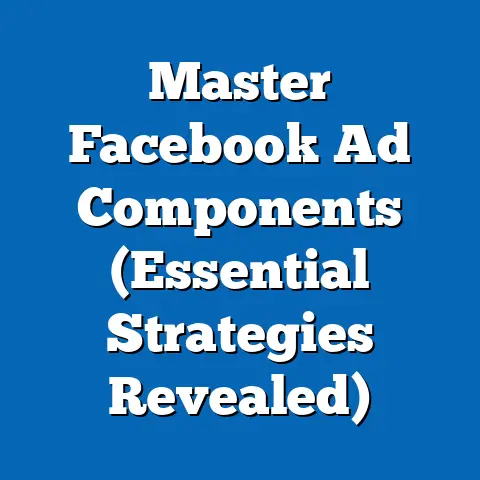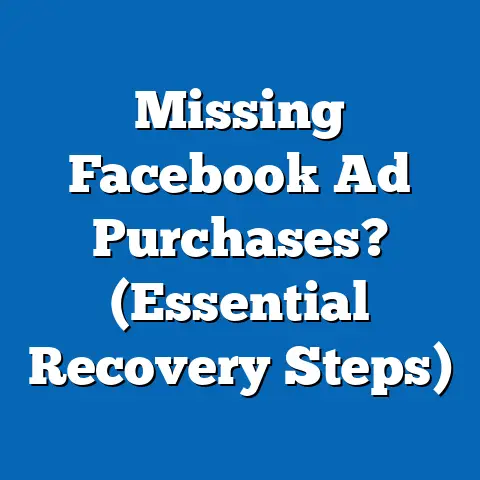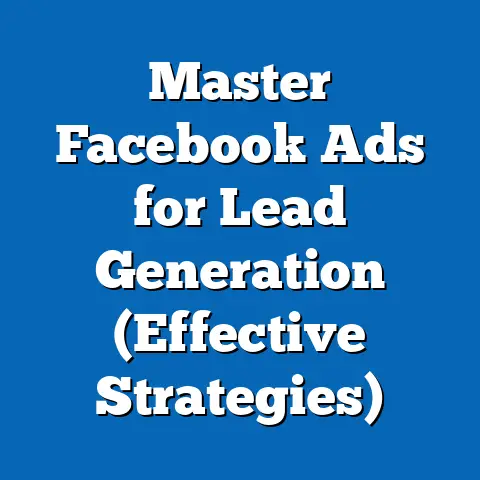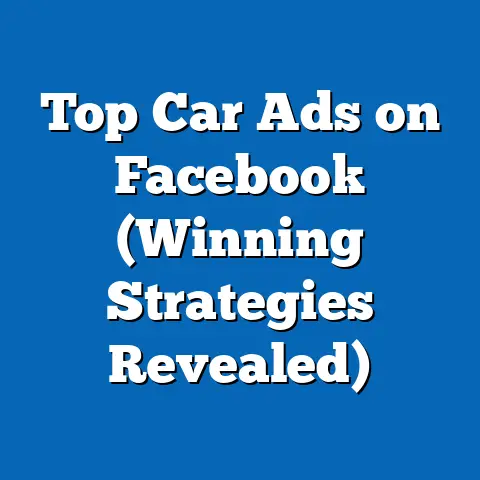Boost Wedding Planner Facebook Ads (Expert Strategies)
The wedding industry is a realm of dreams, where every detail is meticulously curated to create an unforgettable experience.
As a wedding planner, you’re not just selling a service; you’re selling the promise of a perfect day.
And in today’s digital age, Facebook advertising is your megaphone, amplifying your message to the couples who are actively searching for someone to bring their vision to life.
I’ve seen firsthand how a well-crafted Facebook ad campaign can transform a wedding planning business.
It’s not just about pretty pictures and catchy slogans; it’s about understanding your audience, speaking their language, and offering them a solution to their biggest wedding planning anxieties.
In this guide, I’ll share the expert strategies I’ve used to help wedding planners just like you boost their Facebook ads, increase their visibility, and ultimately, book more dream weddings.
Section 1: Understanding the Wedding Planning Market
The wedding planning market is a dynamic landscape, constantly evolving with new trends and technologies.
In recent years, I’ve noticed a significant shift towards digital marketing, with couples increasingly turning to social media for inspiration and vendor discovery.
A recent study showed that over 80% of engaged couples use social media to research wedding vendors, making platforms like Facebook essential for reaching your target audience.
Demographics and Their Influence
Understanding the demographics of couples seeking wedding planners is crucial for tailoring your advertising strategies.
Generally, these couples fall within the 25-35 age range, are tech-savvy, and have disposable income to invest in their wedding.
However, within this broad demographic, there are nuances.
Some couples may prioritize budget-friendly options, while others seek luxury experiences.
I once worked with a wedding planner who specialized in eco-friendly weddings.
By targeting Facebook users interested in sustainability, ethical sourcing, and organic food, we were able to connect them with couples who shared their values and were willing to invest in a green wedding.
The Power of Targeting
Targeting is the cornerstone of successful Facebook advertising.
It allows you to laser-focus your message on the people who are most likely to be interested in your services.
Instead of casting a wide net, you can target users based on their demographics, interests, behaviors, and even life events.
Takeaway: The wedding planning market is increasingly digital, and understanding your target audience is key to crafting effective Facebook ad campaigns.
Section 2: Setting Up Facebook Ads for Wedding Planners
Now, let’s dive into the practical steps of setting up a Facebook ad campaign specifically for wedding planners.
Step 1: Choosing the Right Campaign Objective
Facebook offers various campaign objectives, each designed to achieve a specific goal.
For wedding planners, the most relevant objectives are:
- Traffic: Driving traffic to your website where potential clients can learn more about your services.
- Engagement: Increasing engagement on your Facebook page, building brand awareness and community.
- Lead Generation: Collecting leads directly through Facebook’s lead form ads, making it easy for couples to inquire about your services.
I typically recommend starting with a Lead Generation campaign.
It allows you to capture valuable contact information directly from interested couples, streamlining the inquiry process and making it easier to follow up.
Step 2: Crafting Compelling Ad Copy
Your ad copy is your chance to grab attention and convey the value of your services.
Here are some tips for writing compelling ad copy:
- Highlight your unique selling proposition (USP): What makes you different from other wedding planners?
Do you specialize in destination weddings?
Are you known for your creative floral designs? - Address their pain points: What are the biggest challenges couples face when planning their wedding?
Are they overwhelmed by the sheer number of decisions?
Are they struggling to stay within budget? - Offer a solution: Position yourself as the expert who can alleviate their stress and bring their vision to life.
- Use a strong call to action (CTA): Tell them exactly what you want them to do, such as “Get a Free Consultation” or “Download Our Wedding Planning Checklist.”
I once wrote an ad for a wedding planner that focused on the stress of wedding planning.
The headline read, “Overwhelmed by Wedding Planning?
Let Us Take the Stress Away!” This resonated with couples who were feeling overwhelmed and led to a significant increase in leads.
Step 3: Selecting High-Quality Visuals
Visuals are crucial for capturing attention and showcasing your work.
Use high-quality photos and videos that showcase past weddings you’ve planned and highlight your unique services.
- Carousel Ads: Use carousel ads to showcase multiple photos of different weddings, highlighting your versatility and style.
- Video Ads: Create video ads featuring testimonials from past clients or behind-the-scenes footage of you working your magic.
- Slideshow Ads: Use slideshow ads to create a visually appealing presentation of your services, combining photos, text, and music.
I’ve found that video ads tend to perform exceptionally well, as they allow you to connect with potential clients on a more personal level and showcase your personality and expertise.
A/B Testing for Optimization
Never assume you know what will work best.
A/B testing is critical.
Test different ad formats, headlines, visuals, and CTAs to see what resonates most with your target audience.
Facebook’s Ads Manager makes it easy to run A/B tests and track the performance of different variations.
Takeaway: Setting up a successful Facebook ad campaign involves choosing the right objective, crafting compelling ad copy, selecting high-quality visuals, and A/B testing to optimize performance.
Section 3: Targeting Strategies for Maximum Reach
Now, let’s delve deeper into Facebook’s targeting features and how to use them to reach the right audience.
Custom Audiences
Custom audiences allow you to target people who have already interacted with your business.
You can create custom audiences based on:
- Website visitors: Retarget users who have visited your website but haven’t yet inquired about your services.
- Email list: Upload your email list to target existing contacts with special offers or promotions.
- Facebook page engagement: Target users who have liked your Facebook page, engaged with your posts, or watched your videos.
I’ve seen custom audiences dramatically improve conversion rates.
By retargeting website visitors with personalized ads, you can remind them of your services and encourage them to take the next step.
Lookalike Audiences
Lookalike audiences allow you to reach new people who are similar to your existing customers.
Facebook analyzes your custom audiences and identifies users who share similar demographics, interests, and behaviors.
This is a powerful way to expand your reach and connect with potential clients who are likely to be interested in your services.
Geographic Targeting
Geographic targeting allows you to target users based on their location.
This is particularly useful for wedding planners who primarily serve a specific geographic area.
You can target users based on their city, state, or even zip code.
You can also target users who are traveling to your area for a destination wedding.
Interest Targeting
Interest targeting allows you to target users based on their interests and hobbies.
This is a great way to reach people who are interested in wedding-related content.
Some relevant interests to target include:
- Engaged couples
- Wedding planning
- Bridal magazines
- Wedding venues
- Honeymoon destinations
Takeaway: Effective targeting strategies involve using custom audiences, lookalike audiences, geographic targeting, and interest targeting to reach the right audience with your Facebook ads.
Section 4: Crafting Engaging Content for Ads
Content is king, especially when it comes to Facebook advertising.
Your ads need to be engaging, informative, and visually appealing to capture attention and drive action.
Best Practices for Ad Copy
Here are some best practices for writing ad copy that converts:
- Use a clear and concise headline: Your headline is the first thing people will see, so make it count.
Use a headline that grabs attention and clearly communicates the value of your services. - Focus on the benefits, not just the features: Instead of simply listing your services, highlight the benefits that couples will receive by working with you.
- Use strong action verbs: Use action verbs that encourage users to take the next step, such as “Book,” “Schedule,” or “Download.”
- Include social proof: Share testimonials from past clients or highlight awards you’ve won to build credibility.
The Power of Storytelling
Storytelling is a powerful way to connect with potential clients on an emotional level.
Share anecdotes or testimonials from past clients to illustrate the value of your services.
I worked with a wedding planner who shared a story about a couple who had to postpone their wedding due to unforeseen circumstances.
The wedding planner went above and beyond to help them reschedule their wedding and make it even more special than they had originally planned.
This story resonated with potential clients and showcased the wedding planner’s empathy and commitment.
User-Generated Content
Encourage clients to share their experiences and tag you in their photos and videos.
User-generated content is a powerful form of social proof and can be repurposed in your ads.
Takeaway: Crafting engaging content involves using best practices for ad copy, incorporating storytelling, and leveraging user-generated content to connect with potential clients.
Section 5: Analyzing and Optimizing Ad Performance
Tracking and analyzing your ad performance is crucial for optimizing your campaigns and maximizing your ROI.
Key Metrics to Track
Here are some key metrics to track in Facebook Ads Manager:
- Click-through rate (CTR): The percentage of people who saw your ad and clicked on it.
- Conversion rate: The percentage of people who clicked on your ad and completed a desired action, such as filling out a lead form or booking a consultation.
- Cost per click (CPC): The average cost you pay each time someone clicks on your ad.
- Cost per lead (CPL): The average cost you pay for each lead generated through your ad campaign.
- Return on ad spend (ROAS): The amount of revenue you generate for every dollar you spend on advertising.
I recommend setting up conversion tracking to accurately measure the impact of your ad campaigns on your business.
Data-Driven Decisions
Use the data you collect to make informed decisions about your ad spend and targeting adjustments.
If an ad is performing poorly, pause it and try a different approach.
If a particular audience is converting well, allocate more budget to that audience.
Continuous Optimization
Facebook advertising is not a set-it-and-forget-it strategy.
It requires continuous optimization and refinement.
Regularly review your ad performance, experiment with different variations, and stay up-to-date on the latest trends and best practices.
I typically review my ad campaigns on a weekly basis to identify areas for improvement.
Takeaway: Analyzing and optimizing ad performance involves tracking key metrics, making data-driven decisions, and continuously refining your campaigns to maximize ROI.
Section 6: Leveraging Seasonal Trends and Events
The wedding industry is heavily influenced by seasonal trends and events.
Capitalize on these trends to create timely and relevant ads that resonate with potential clients.
Popular Wedding Seasons
Spring and summer are the most popular wedding seasons.
Create themed campaigns around these seasons, showcasing outdoor venues, floral arrangements, and seasonal menus.
Holidays and Special Occasions
Holidays like Valentine’s Day and New Year’s Eve are also popular times for engagements.
Create ads that target recently engaged couples and offer special promotions for booking your services.
I’ve seen wedding planners create incredibly successful Valentine’s Day campaigns offering discounts on engagement photo shoots or wedding planning packages.
Local Wedding Expos and Bridal Shows
Align your ad campaigns with local wedding expos and bridal shows to increase visibility and drive traffic to your booth.
Offer exclusive discounts or promotions to attendees who book your services at the event.
Takeaway: Leveraging seasonal trends and events involves creating timely and relevant ads that capitalize on popular wedding seasons, holidays, and local events.
Section 7: Integrating Facebook Ads with Other Marketing Channels
Facebook ads are just one piece of the puzzle.
Integrate them with your other marketing channels to create a cohesive and effective marketing strategy.
Email Marketing
Collect email addresses through your Facebook lead form ads and nurture those leads with email marketing.
Send them valuable content, such as wedding planning checklists, venue guides, and vendor recommendations.
Website Optimization
Ensure your website is optimized for conversions.
Make it easy for potential clients to find the information they need and contact you for a consultation.
Influencer Collaborations
Collaborate with local wedding influencers to promote your services to their followers.
This can be a great way to reach a wider audience and build credibility.
I worked with a wedding planner who partnered with a popular local wedding blogger.
The blogger wrote a blog post about the wedding planner’s services and shared it on social media, resulting in a significant increase in website traffic and leads.
Building a Strong Online Presence
Having a strong online presence beyond Facebook is critical.
This includes an optimized website, active engagement on other social media platforms (like Instagram and Pinterest), and positive online reviews.
Takeaway: Integrating Facebook ads with other marketing channels involves email marketing, website optimization, influencer collaborations, and building a strong online presence to create a cohesive and effective marketing strategy.
Conclusion:
Facebook advertising is a powerful tool for wedding planners looking to boost their visibility, attract new clients, and grow their business.
By understanding your target audience, crafting compelling ads, leveraging Facebook’s targeting features, and continuously optimizing your campaigns, you can achieve significant results.
Remember, the wedding industry is constantly evolving, so it’s essential to stay updated on the latest trends and best practices in Facebook advertising.
By embracing these strategies, you can position yourself as the go-to wedding planner in your area and help couples create the wedding of their dreams.

